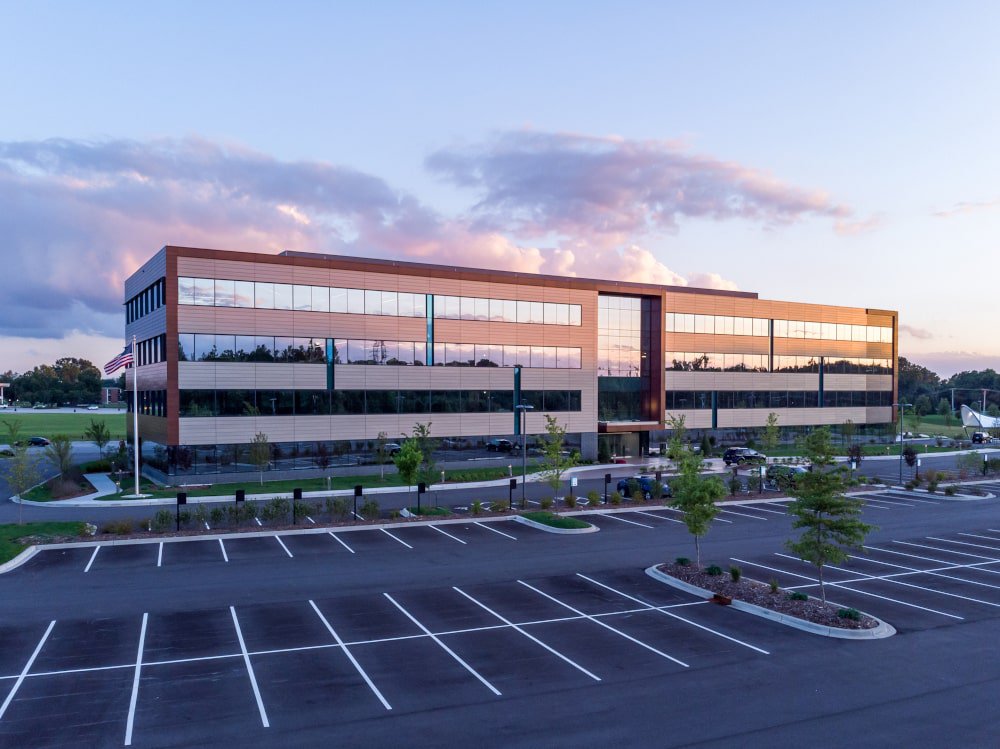What Does the Future of Commercial Real Estate Look Like in Canada?

The current state of the Canadian economy has been plagued by uncertainty , both inside and outside of our national real estate markets. In this era of rapid technological advancements, shifting demographics, and changing global dynamics, it can be difficult to predict what comes next—especially as a real estate investor. In this guide, we hope to dig deeper into the current trends of the Canadian commercial real estate market, and look forward to the future of commercial real estate properties in Canada.
Trends and Shifts in Canada’s Landscape of Commercial Real Estate
In 2023, one of the most significant trends that has been a recurrent pricing mismatch between building owners and prospective tenants. Given the continued increase of the overnight lending rate this year, retail property owners across Canada raised their rents, pressured by their increased monthly payments.
Unfortunately, the demand for rental space, from a retail tenant’s perspective, was not high enough to justify these rent increases. As a result, many retail commercial properties went tenantless in the past few years, while others replaced their smaller, local, tenant base with larger players such as Starbucks.
Even after the return to in-person shopping, post-pandemic, many retailers are still having difficulty matching the foot traffic numbers they saw pre-2019. The continued growth of e-commerce players and platforms has left property owners and retail tenants alike struggling to entice their consumers back into stores.
While the retail commercial property segment has had some trouble, office real estate has fared even worse this year. As efforts to force workers back into the office have been met with considerable resistance, many companies are instead opting to sub-lease their office spaces to be repurposed, with Shopify leading the charge earlier this year.
Of all the subsegments of commercial real estate, industrial properties have performed the best. They continue to maintain near 100% occupancy rates with demand for these properties remaining high across Canada.
Prospects and Challenges of Canada's Commercial Property Sector
One of the biggest challenges within the current Canadian commercial property landscape, is the immense discrepancy between small and larger investors. While corporate investors such as mega-funds, REITs, and property management firms have taken on increased mortgage costs following the increase in rates, they have have more than enough capital to stay afloat.
Smaller investors on the other hand have not always had this privilege. There used to be a time when almost anyone could invest in commercial real estate, even as an individual. These days, however, it is becoming increasingly difficult to keep with institutional investors, who have been slowly but surely pushing independent investors (smaller businesses, etc.) out of the marketplace. On top of increasing rates, rising construction and labour costs are also placing immense pressure on investors across the board. Costs are rising, but rents are not following.
Another major concern has been the volatility of the current market. Given the rapid changes that have taken place in the last few years, it is difficult to predict the future and as a result, it is more difficult for investors to manage risk when making long-term decisions.
One risk-management strategy that many investors have been considering is to repurpose their under-demanded commercial properties into residential units . As demand for housing continues to reach critical highs, re-zoning properties with appropriate existing infrastructure (plumbing, electricity, etc.) can potentially serve as a viable path forward in the next few years.
Adapting to Change: Predictions and Insights for the Future
Amidst so much economic uncertainty, entering into a commercial property investment is more difficult than ever—but it doesn’t have to be. While there are additional challenges, they can be mitigated with a clear and comprehensive strategic plan. Your plan should consider how much space you can afford, what location is best for your rental needs, whether you have enough room to grow, etc. You should also include very conservative financial projections when determining the answer to these questions. Will this investment still be profitable amidst a recession?
As the industry continues to evolve, current projections suggest that properties outfitted with high-tech features, such as ESG-friendly property enhancements and cybersecurity systems will likely perform better in the market. Office properties also will need to rethink their strategy in order to accommodate the need for work-from-home systems, rather than fighting to abolish them. Corporate culture is pushing forward, and it is time for commercial real estate investors to follow. Properties that are flexible in their use and zoning (commercial vs. residential) will also likely increase in popularity, as the most successful properties are those that can quickly adapt to the changing tune of the Canadian and US markets.
While the tides may seem especially rough recently, entrepreneurs looking to buy a property should not be discouraged by rising interest rates. Despite short-term challenges, real estate has historically remained an asset that consistently performs well in the long run. Investing in a property can help you build equity while generating income from rent and from increasing property value. You can also use a commercial real estate investment as collateral for future loans that could be used to finance your company, or even save for retirement.
Your ultimate decision to proceed with, or hold back on, a commercial property investment should take both your current and future requirements into account, considering factors such automation and the growing demand for remote work. Consider whether you will require more or less space, and what location would best suit your business. While this planning may require some upfront effort, good planning will pay dividends down the line.
If you are looking to invest in a commercial property in the near future, it is highly advisable that you consult with a trusted mortgage broker. Here at Clover Mortgage, we can analyze your current financial standing as well as your future goals to determine a personalized plan of action for you and your new property. There are a number of strategies we can employ to give you the highest level of flexibility possible. From construction loans , to unique lenders, to lower interest rates, Clover Mortgage can help you find what you are looking for. Contact us today to schedule your first consultation, for free.





